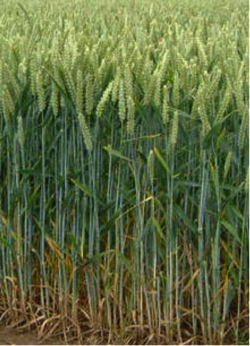
I understand loving the taste of grains. Now that I've spent the better part of a year without gluten, months without grains, I can still admit that I have loved grains in my life. When posed the “Name one food to have on a desert island” question, I was always torn between eggs and brown rice. If I could have had two foods (butter!), I would have gone with the rice. And if we're talking about more complex foods, who doesn't love freshly baked whole grain bread?
Our immune systems, actually, don't really love that bread.
Sitting at my desk, looking at the blank page: I'm not sure how to write this blog post. Clearly, I want to write about grains and how they affect our health. My desire to be informative however is overwhelmed by my desire to be influential. From my own experience (personal and clinical) and the research emerging with increasing interest in the Paleo Diet and Ancestral Medicine, I believe there is a very good chance that many illnesses could be mitigated if not thwarted by the elimination of grains. That part is up to you, however. So perhaps if I put that right out there, up front, I can get on with the information, and leave the life-changing-or-not part of it in your hands where it belongs.
Alright, desk cleared, let's talk about the three main problem areas that grains present when you're trying to eat a healthy diet.
- Grains are primarily (about 70%) made of starch, which is a version of paired glucose molecules, which act in your body just like any other sugar. They raise the level of sugar in your blood, which elevates your level of insulin so that the sugar can be ushered into the cells of the body and taken out of the bloodstream where it can do harm (eyes, kidneys, etc.). If there's any extra insulin, your blood sugar can go down a little too far and magic, you're hungry again, and specifically for a sugar that can normalize your blood sugar. Stay on that merry-go-round for very long and the results are weight gain, first, and eventually, metabolic syndrome, type 2 diabetes, and more. Check out my article on Diabetes (link) for more information on that mechanism.
- Gluten. Grains all contain some gluten-like protein, but only grains of wheat, rye, and barley contain the gluten that is widely discussed. Case in point: Gluten Free Snack on Huffington Post! People with known celiac disease are highly intolerant of gluten, but it has a lesser though similar effect in everyone's gut. Gluten contains a protein called gliadin. When gliadin hits our intestinal lining, a substance called “zonulin” is released which increases the leakiness or permeability of our intestines by opening the previously tight fence between the intestinal cells. Any protein that “leaks” through the open fence is capable of triggering an immune reaction, near or far. Not to mention that leaky gut is a suspected contributor to the problem of obesity. Yes, your leaky gut could be making you fat, well explained by Chris Kresser.
The two most clearly identified sites of immune reaction to gluten are the intestines themselves (pain, bloating, diarrhea, etc.) and the skin (an itchy or painful rash known as dermatitis herpetiformis), but the thyroid, brain and other tissues are likely targets as well. A detailed discussion of gluten in Scientific American, August 2009, explains the mechanisms by which gluten is suspected of contributing to any and all autoimmune disease.
A leaky gut doesn't absorb nutrients as well, so problems from anemia to osteoporosis might be the first evidence that a clever sleuth would track back to a gluten sensitivity. - Anti-nutrients. Phytates and lectins are found in all grains, as well as beans, seeds, and some nuts. Their global purpose is to inhibit the digestion of those foods in the intestines of whoever eats them (yours, mine, ours, and grazing animals), so that they pass through intact and can sprout happily in a pile of dung. Their internal effect however can be devastating to the consumer. Phytates inhibit digestion not only of the grain or nut, but also of any protein, carbohydrate, or fat in the neighborhood. Lectins are the real hazards however, as they wreak havoc in several different ways.
- Similar to gluten, they also can trigger an immune response.
- By causing leptin resistance, we lose leptin's appetite suppression, which can lead to overeating and obesity.
- Lectins function as proteins in our bodies that can activate receptors for which they were not intended, such as “Epidermal Growth Factor Receptor”. Excessive epidermal growth causes things likes polyps and tumors.
- You might recognize the name of a well known Lectin: the biological agent Ricin is derived from the castor oil plant, and inhibits protein synthesis which is the basis of health and life!
That's a quick trip through a subject that has been explored more exhaustively in other areas. If you're curious for more information, check out Caveman Doctor's multi-part blog on Grains here .
What do you think, is this at all compelling to you as an argument against grains in a balanced diet? I'd like to hear from you if you have any thoughts on the issue: would you consider going off grains? Why yes or no on that question? In my next post, I'll talk a bit about what life would is like when you take seriously the possibility that really, any health problem could be caused by eating grains. You won't know until you remove the grains from your diet. A month. Try for a month. (Really? ALL grains? Check back next week for more on that question!)
